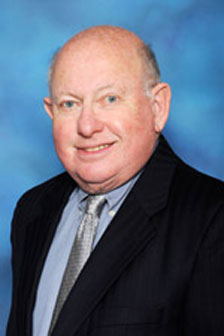Lewis Kuller, MD, DrPH
Born:

Prof. Kuller was born in Brooklyn, NY and educated at George Washington University and Johns Hopkins. Kuller served on the Hopkins SPH faculty for several years and in 1967 went to the SPH at Pittsburgh, where he remains working today, after retirement as head of epidemiology in 2003. He was trained in infectious and chronic disease epidemiology and has made central contributions to the epidemiology of cardiovascular diseases, diabetes and metabolic diseases, and cancer. He became an authority on the epidemiology of sudden death after his interest arose during ambulance duties as a student. He has explored genetic-environmental interactions, gender issues, and ethnic differences. Kuller is equally comfortable in empirical research and reviews and editorials, in ethnic and gender comparisons, in observations, trials and community studies, in drug and hygienic trials, and in study leadership or collaboration. His enthusiasm, breadth of curiosity, and integration of knowledge make him a strong leader and effective teacher. He enjoys speaking his mind and sharing his intensity with any audience.
Kuller shares the view of pioneer epidemiologists that one searches for variations, not homogeneity, in populations for clues to cause and prevention. He has a long history of moving effectively between the clinic, laboratory mechanisms, and population studies and trials. For example, he states: “I teach my students that epidemiology is best when there’s chaos. We see right now that when you have an epidemic, it’s chaos to have an epidemic … chronic disease epidemiologists are the same way.”
“… [W]hat we need to do for the future is to make people recognize the fact that epidemiologists have to be out looking for where the epidemics are. And by that I mean where there are differences in rates of disease and keeping their eyes open and looking for unusual population distributions. And understanding both the biology [and] … the psycho-social factors that are involved as well. Either you study what are natural experiments, people who vary dramatically because of where they live or because of their social factors or their religious beliefs or […] people who have certain kinds of dietary habits or people who live in unusual places, or we do it ourselves by manipulating the diet. Just counting and going out and measuring diet in large numbers of homogeneous people tells us almost nothing.” (HB)
Sources
Kuller L (1969). Sudden death in arteriosclerotic heart disease; the case for preventive medicine. Am J Cardiol. 24(5):617-28.
Kuller LH (2002). Hyperlipidaemia and cardiovascular disease. [Editorial Review] Current Opinion in Lipidology. 13(4):449-51.
Kuller LH (2003). On reconsidering community-based health promotion.[comment]. [Comment. Letter] American Journal of Public Health. 93(8):1201; author reply 1201-2.
Kuller LH, Lopez OL, Jagust WJ, Becker JT, DeKosky ST, Lyketsos C, Kawas C, Breitner JC, Fitzpatrick A (2005). Dulberg C. Determinants of vascular dementia in the Cardiovascular Health Cognition Study. Neurology. 64(9):1548-52.